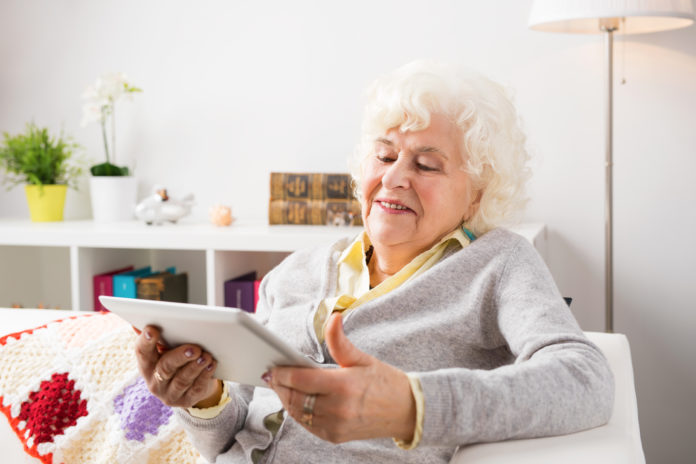Source: The Conversation (Au and NZ) – By Bridget Laging, Senior Research Fellow, Aged Care PhD, Australian Catholic University
Social distancing is rapidly becoming a way of life as Australia fights the outbreak of COVID-19.
This is especially important when it comes to protecting the older and disabled members of our community living in residential aged care. In these facilities, communal living, chronic disease and advanced age combine to make the threat posed by COVID-19 far greater.
This week, the federal government issued guidelines to further protect older people from COVID-19. Visitors are advised to stay away when they are unwell and ensure they follow advice on proper hygiene, but the new restrictions go even further:
-
no more than two visitors per resident per day
- no children under 16
-
no “non-essential” visitors, including hairdressers, allied health professionals, musicians and volunteers
-
visits should take place in residents’ rooms or outdoors
Impact of loneliness and isolation
The latest aged care quality standards set by the Aged Care Quality and Safety Commission require that older people in residential aged care receive adequate social engagement. Reduced socialisation due to COVID-19 may have a deleterious effect on the health and well-being of these residents.
Older people in residential aged care are already twice as likely to experience loneliness than those living in the outside community.
Many residents of aged care facilities also feel socially isolated, even though they live in communal settings. Some research has shown that many residents in aged care facilities have few visitors, although we need more research to understand the true levels of visiting.
Read more: The ‘dreaded duo’: Australia will likely hit a peak in coronavirus cases around flu season
Loneliness is also associated with negative physical and mental health outcomes, including high blood pressure, cardiovascular disease, disability, cognitive decline, depression and early mortality.
We know that up to half of residents in residential aged care facilities have significant symptoms of depression and two-thirds have cognitive impairment.
There is growing evidence that older people who are lonely or isolated may also be at a higher risk of exacerbating the onset and trajectory of dementia and Alzheimer’s disease.
Disruptions to familiar routines and rituals stemming from reduced activities and decreased access to communal areas may also have a negative effect, particularly for people with dementia. This, too, can reduce the quality of their lives.
Maintaining connections during coronavirus
So, what can we do to improve the mental health of residents during this outbreak when visitor access will be curtailed even further?
For starters, activities such as reminiscence therapy and music therapy have been shown to help loneliness and depression.
Intergenerational programmes involving visits from secondary school students, such as iGEN, can also reduce isolation and loneliness and support broader community connections. These will need to be modified during the coronavirus outbreak, due to the restrictions on non-essential visitors.
Read more: Coronavirus will devastate Aboriginal communities if we don’t act now
Similarly, research shows that befriending – which involves volunteers visiting an older person weekly to chat about topics of mutual interest – can also help residents cope with depression, anxiety and loneliness.
Under the new COVID-19 guidelines, we also need to explore creative ways to maintain engagement in such programs.
Technology such as Zoom, Skype and FaceTime, for instance, can support older people in residential aged care to meaningfully connect with family and friends.
The use of smartphones in aged care settings has already been associated with increased social support for both residents and their families, helping them to feel closer and providing reassurance.
When technology isn’t available, gestures as simple as a regular telephone chat can provide a significant boost to a resident’s well-being.
Other strategies include sending aged care residents individually curated music playlists, letters, photos and postcards using large font to help keep their spirits up. Virtual karaoke is another popular activity. Dementia Alliance International has created a suite of online resources for older people, as well, including virtual tours of museums and galleries.
The challenge here, however, is an an urgent need to increase the uptake of technology within the aged care sector. There are some federal programs, such as “Be Connected”, which trains older adults to use technology, but more resources are needed.
More assistance to aged care staff
Much of the gap in social support due to visitor restrictions will need to be taken up by nurses and personal care workers.
The federal government has announced additional funding to boost staff numbers and training during the COVID-19 crisis, which will be essential to support an already overstretched workforce.
Workforce consistency is vital to supporting residents’ health and wellbeing. Our research shows that residents greatly value the ability to develop familiarity, trust and rapport with frontline staff.
Read more: Why are older people more at risk of coronavirus?
Aged care providers also need to support their staff through the crisis. Some are boosting morale with innovative programs such as Baptist Care’s “Support The Staff” email campaign, which enables family members of residents and the general public to send uplifting messages to staff.
Balancing the need for protection and connection
It is also vitally important to respect residents’ rights during this challenging time, and offer them as much control as possible over choices.
While it is for the collective good to restrict face-to-face visits, alternatives need to be offered. Government policies and operators will need to navigate the delicate balance between protection of older people from COVID-19 and their rights to social engagement.
There is a possible upside to the current crisis. The sense of urgency created by our attempts to stave off COVID-19 may lead to innovative solutions to address loneliness in aged care settings – and longer-lasting improvements in the mental health of residents.
– ref. Virtual karaoke and museum tours: how older people can cope with loneliness during the coronavirus crisis – https://theconversation.com/virtual-karaoke-and-museum-tours-how-older-people-can-cope-with-loneliness-during-the-coronavirus-crisis-133771





